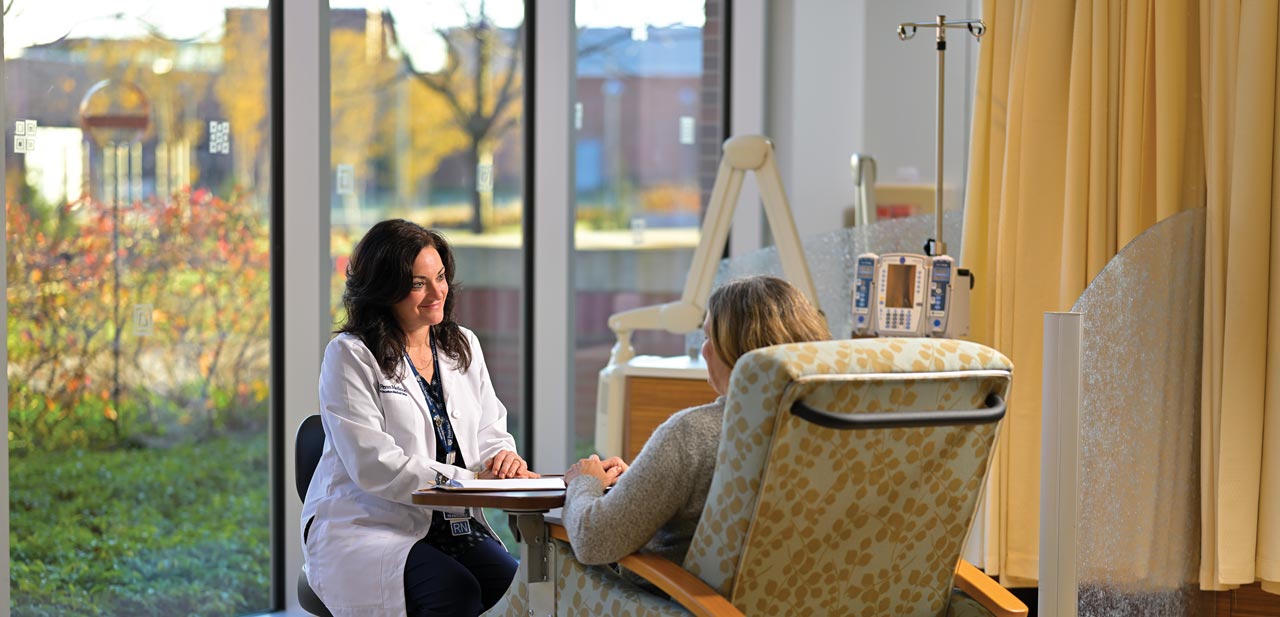“As options for the treatment of cancer continue to grow, so too do the comforts we can offer patients as they go through that treatment,” says Peggy Kenny, MSN, RN, OCN, Clinical Nurse Manager at the Penn Medicine Princeton Cancer Center.
The Princeton Cancer Center offers infusion therapy and radiation oncology services on site, in addition to supportive services. “We have a beautiful, well-equipped center, and all the advanced resources available to us through our Penn Medicine partnership,” says Kenny. “Additionally, all of our nurses are oncology certified, or required to be within two years of hire.”
The first step in cancer treatment is meeting with an oncologist to determine a treatment plan. A nurse navigator will then contact the patient before the first treatment to explain the plan of care, answer any questions, assist with scheduling of pre-treatment tests, and ensure the patient has a thorough understanding of what to expect. Additional support is available from the social worker, who can assist with emotional or financial concerns; a nutritionist, who is a board-certified oncology specialist; and a clinical research nurse, who can provide patients with information on clinical trials and assist with enrollment if appropriate. The center also has its own pharmacist, so medications can be prepared on site and patients’ questions can be readily answered.
“Patients always have the opportunity to meet with a support person to discuss whatever they need to discuss,” says Kenny. “When it comes to treatment here, no one goes through the process alone. We are a team.”
Comfort Comes in Many Forms
Each infusion station at the center is equipped with a recliner with heat and massage, and a television; and all chairs have a view of the serene healing garden, as well as a curtain that can be closed if privacy is preferred. There is beautiful artwork on the walls. Each piece was specifically chosen as part of Princeton Health’s Art for Healing program. To help relieve stress, the center also offers patients pet therapy, Reiki, and other relaxation techniques. Coffee, tea, juice, and light snacks are also available.
The amount of time required for infusions and the frequency of treatments depends on the individual patient’s diagnosis and treatment plan, but the center is designed to help make the time pass more quickly and comfortably.
“We also have much better ways to help manage side effects than we did in the past,” says Kenny. “This helps patients feel more comfortable during and between treatments.”

